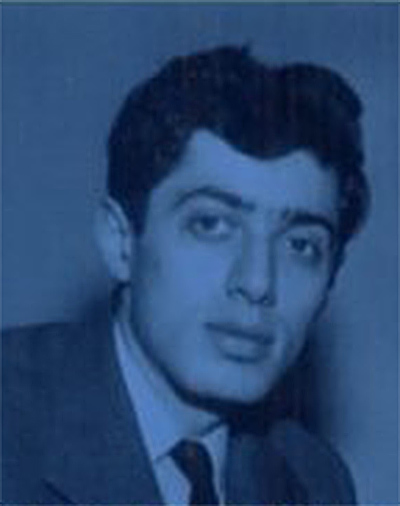
Biography
Seth Benardete (1930–2001) was Professor of Classics at New York University from 1966 until the last year of his life. During this period he also regularly offered a graduate seminar on Plato or Aristotle at the New School for Social Research and held fellowships from the National Endowment for the Humanities and the Carl Friedrich von Siemens Stiftung in Munich.
Benardete’s teaching and scholarship encompassed the whole range of Greek and Latin antiquity, including Homer and Hesiod, Plato and Aristotle, Aeschylus and Sophocles, and Virgil and Horace, among many others. At the core of his work are renowned translations of and commentaries on Plato’s dialogues. In a eulogy for him, his friend Harvey Mansfield explained how the breadth of Benardete’s work was also a clue to the depth of his thought: “Benardete was extremely learned in the details of philology…but if you want to know his specialty, it was the whole…Benardete found philosophy in poetry and poetry in philosophy. That was the theme of his many books on Homer, Plato, and Sophocles.”
Benardete’s interpretations are distinguished by his focus on what he believes is the counterpart in philosophic works to the plot of a play or epic, a phenomenon to which he refers as the “argument of the action”—a phrase used as the title for a collection of his essays published in 2001. In an essay about his teacher, Leo Strauss, Benardete explains: “Once argument and action are properly put together an entirely new argument emerges that could never have been expected from the argument on the written page. Something happens in a Platonic dialogue that in its revolutionary unexpectedness is the equivalent to the periagoge [turn-around], as Socrates calls it, of philosophy itself.” In all his work Benardete tries to make present to his readers this experience of the unexpected character of philosophic thinking.
Benardete’s philosophic path was inspired by his studies with Strauss, who arrived at the University of Chicago in 1949 from the New School for Social Research. Benardete grew up in an academic household—both his parents taught at Brooklyn College—and he came to the Committee on Social Thought at an early age. There he met other students who were to become important teachers and scholars, such as Allan Bloom and Stanley Rosen. After studying abroad and studying and teaching at Harvard, St. John’s College, Annapolis, and Brandeis, Benardete found a long-lasting academic home at NYU and the New School. His first book was on Herodotus, while subsequent books were mainly on Plato, including commentaries on the Republic, Gorgias and Phaedrus, and translations, with accompanying commentaries, of the Philebus and the trilogy Theaetetus, Sophist, Statesman (in The Being of the Beautiful, 1984). One of his last books was The Bow and the Lyre, a commentary on Homer’s Odyssey (1997).
Benardete died in 2001 after a brief illness, leaving behind a fascinating body of scholarship as well as a deep imprint on many of his students. For those of us who did not have the opportunity to know him, we fortunately possess an autobiography of sorts, Encounters and Reflections, an edited transcript of conversations in which Benardete discusses with his students some of the circumstances that shaped his life and thought. In a review of that book, Mark Blitz describes “the marvelous combination of accidents—academic parents, undergraduate friends such as Stanley Rosen and Bloom, attention to the great books, and the presence of Leo Strauss—that helped make Benardete what he was.” And as Blitz goes on to remark, “The humor and intelligence in Seth Benardete’s Encounters and Reflections make us long for the world it remembers.”
For more biographical information, see:
Biographical material of Seth Benardete at the Benardete Archive.
Mark Blitz “At Homer’s Diner,” Weekly Standard, April 7, 2003.
